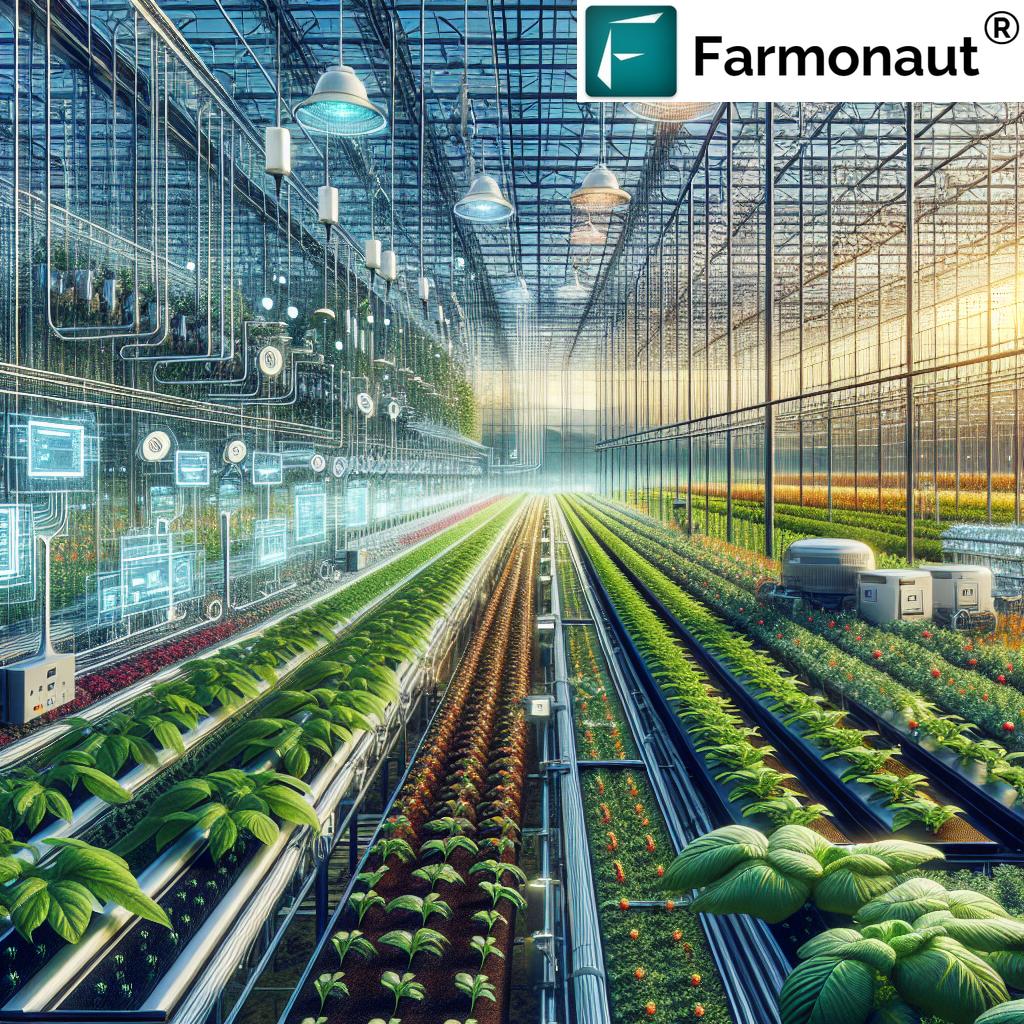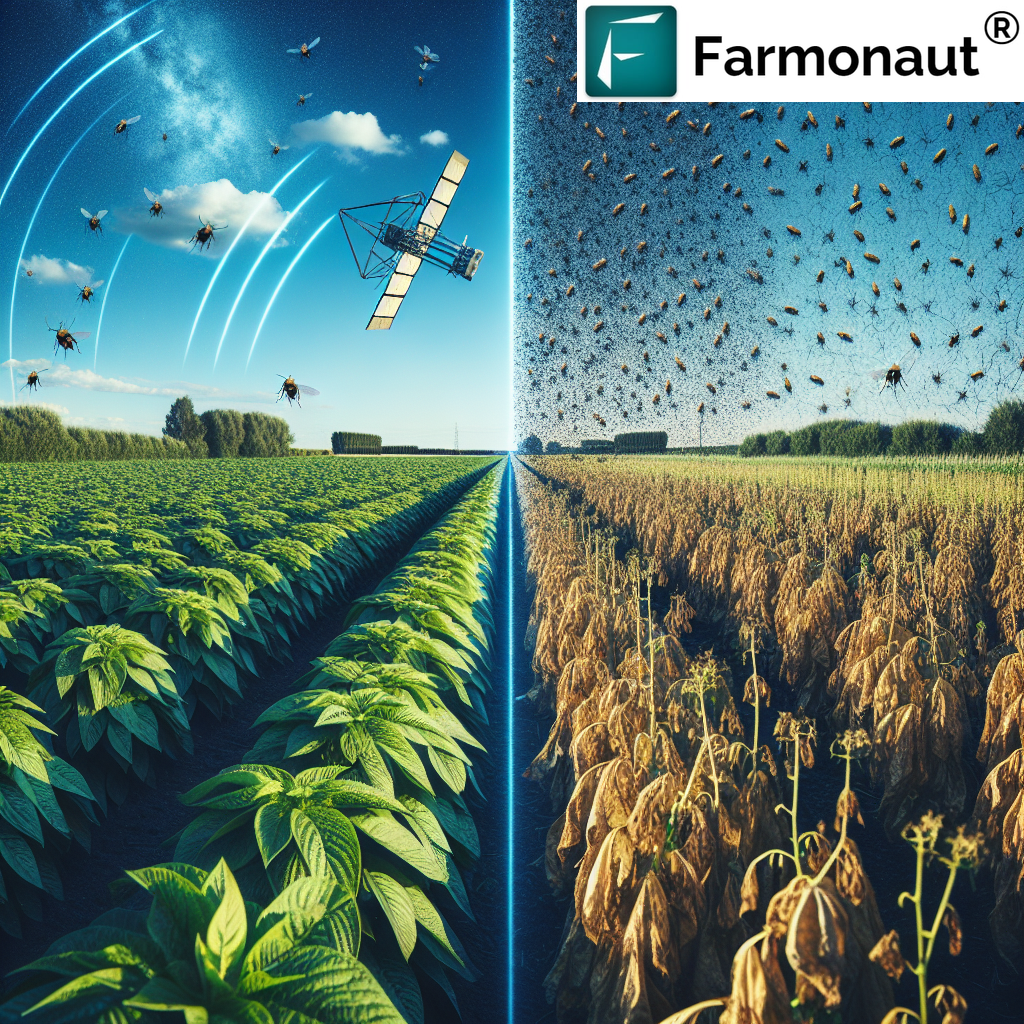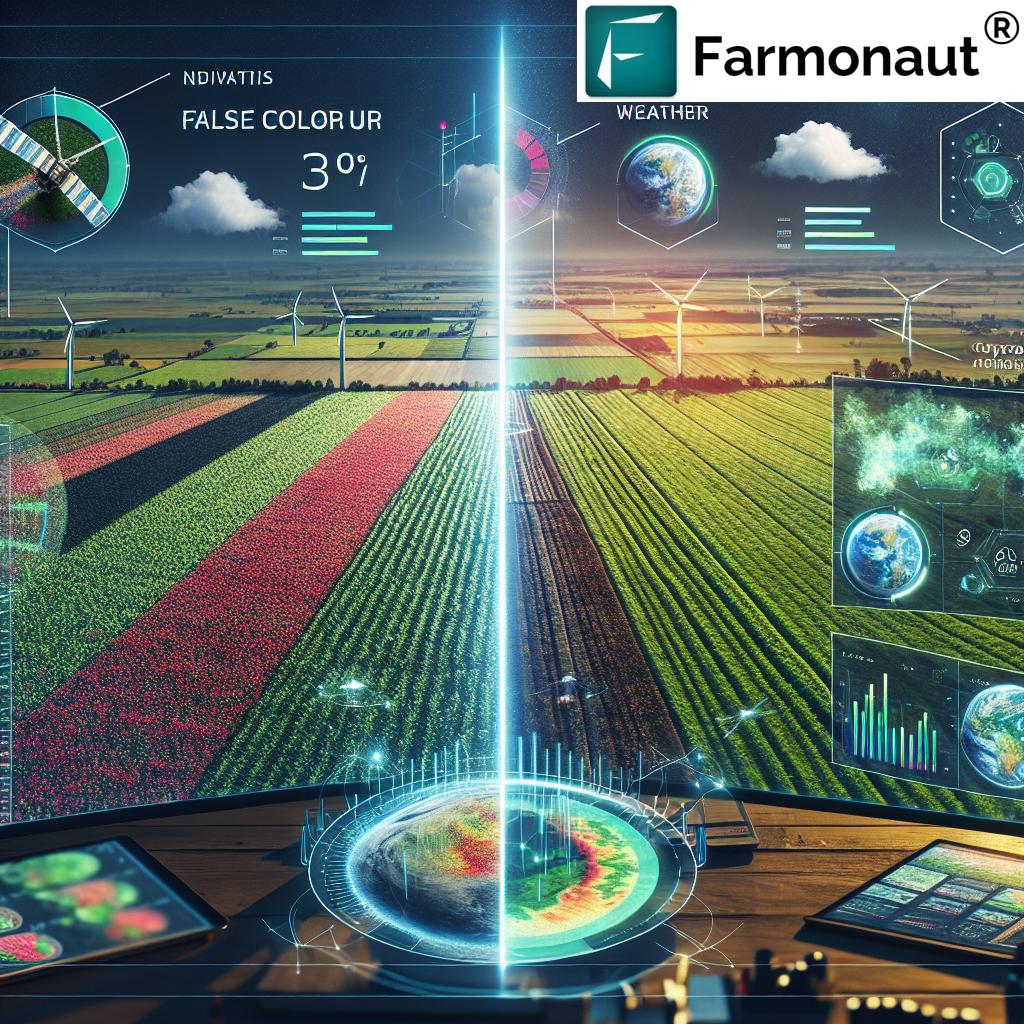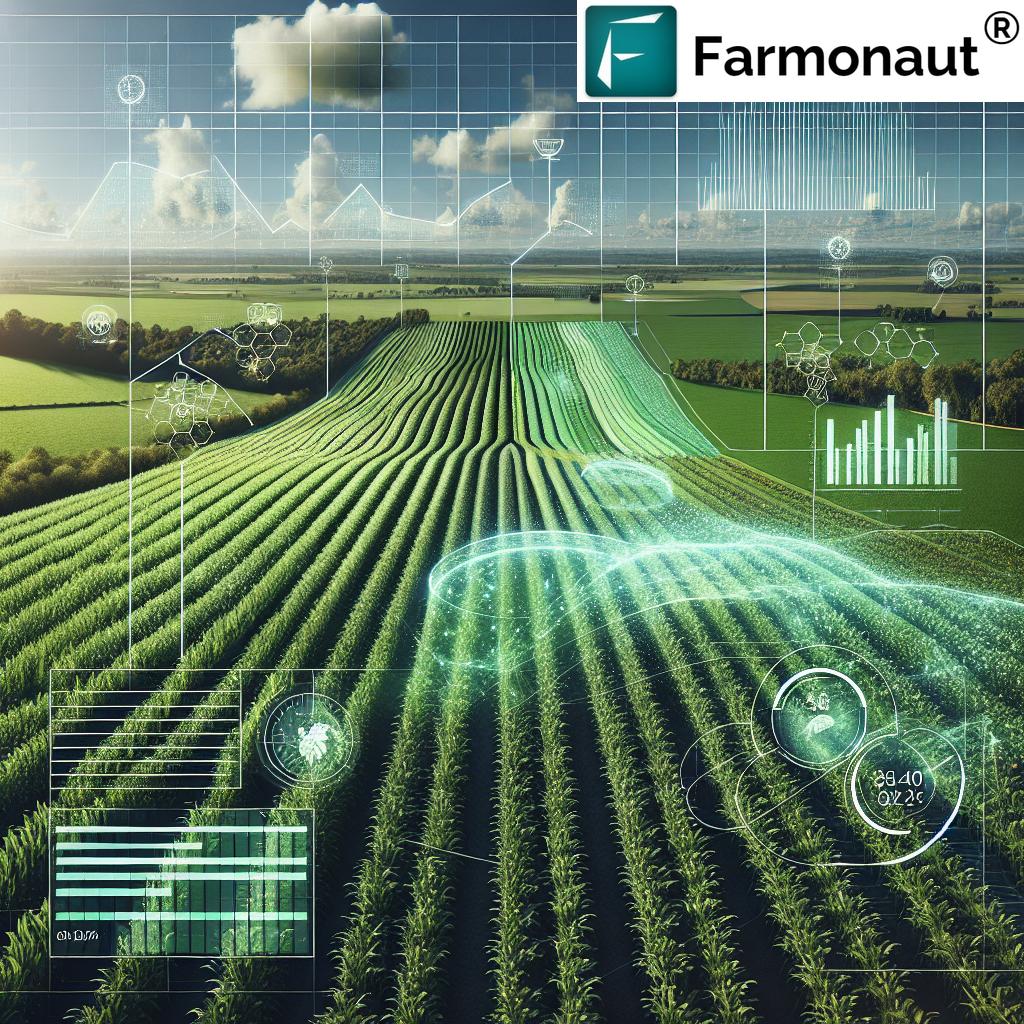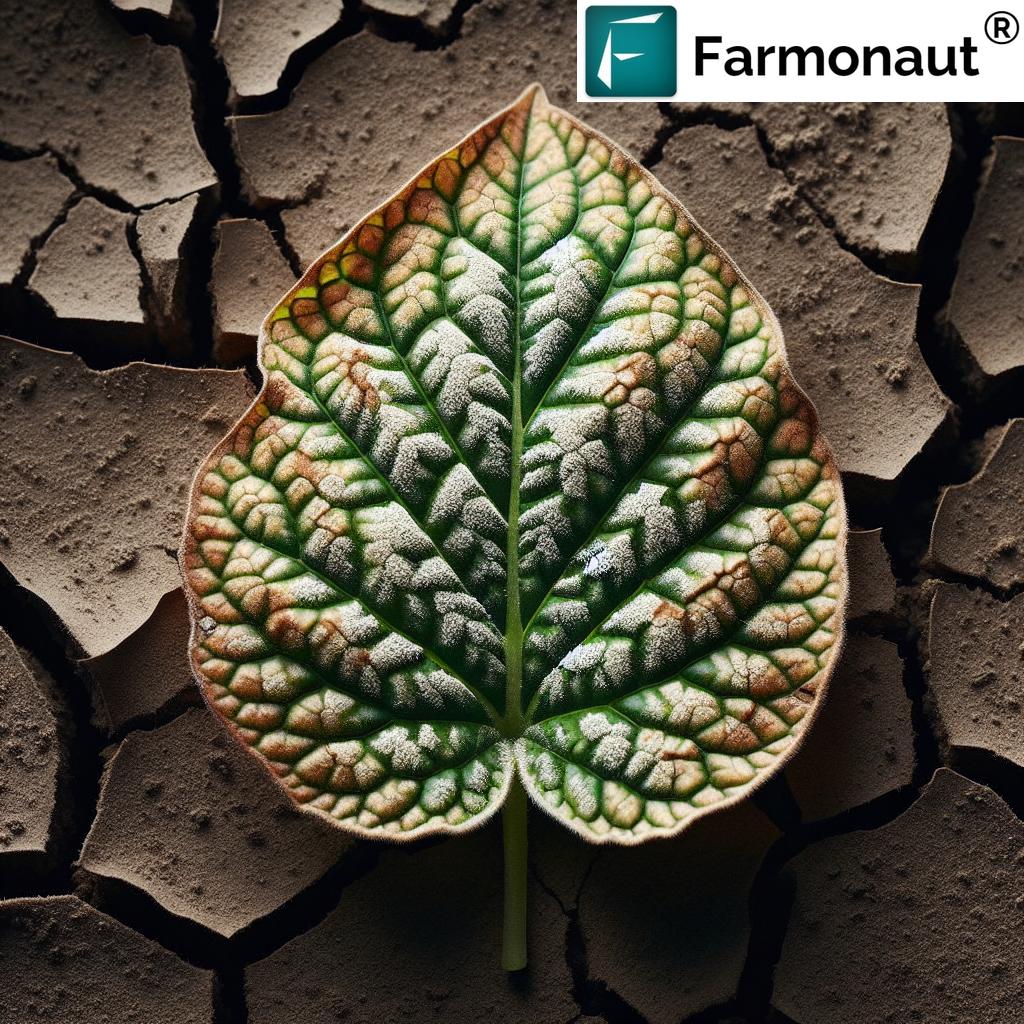Precision Agriculture Philippines: 7 Yield-Boosting Tips
Meta Description: Precision agriculture Philippines is transforming farming. Discover 7 innovative tips to boost yields, sustainability, and resilience for Filipino farmers in 2025 and beyond.
“Precision agriculture can increase crop yields in the Philippines by up to 20% through optimized resource management.”
Table of Contents
- Precision Agriculture in the Philippines: A Sustainable Transformation for 2025
- Introduction: Opportunities and Challenges in Philippine Agriculture
- What Is Precision Agriculture?
- Before and After: The Impact of Precision Agriculture in the Philippines
- Precision Agriculture Philippines: 7 Yield-Boosting Tips
- 1. Satellite and Remote Sensing for Crop Monitoring
- 2. Variable Rate Technology for Inputs
- 3. Drones & IoT Sensors: Real-Time Field Insights
- 4. Efficient Water Management Systems
- 5. Data Analytics and AI-driven Decision Making
- 6. Blockchain and Traceability for Food Security
- 7. Mobile Platforms and Digital Extension Services
- Farmonaut: Satellite-Powered Solutions for Agriculture Philippines
- Adoption Challenges and How to Overcome Them
- The Future of Precision Agriculture in the Philippines
- Frequently Asked Questions
- Conclusion: Securing the Future of Philippine Agriculture in 2025 and Beyond
Precision Agriculture in the Philippines: Transforming Farming for a Sustainable Future in 2025
Philippine agriculture remains the backbone of the economy, employing a significant portion of the population and playing a vital role in food security, rural livelihoods, and sustainability. However, this crucial sector faces persistent issues: climate change, limited arable land, fragmented farms, resource constraints, and rising input costs. In this context, precision agriculture in the Philippines is emerging as a transformative approach. Leveraging advanced technologies—satellite remote sensing, IoT sensors, drones, and AI-powered analytics—precision agriculture enables Filipino farmers to optimize crop yields, cut costs, improve soil health, and ensure sustainable production for 2025 and beyond.
As government support and private innovation rise, and agri-tech awareness spreads, precision farming in the Philippines has gained significant traction. By focusing on streamlined resource use, environmental protection, and data-driven decision making, Filipino farmers can transition to more resilient and productive agricultural systems to feed the nation and secure livelihoods for future generations.
Introduction: Opportunities and Challenges in Philippine Agriculture
The agriculture sector in the Philippines is a cornerstone of the national economy, employing millions and contributing substantially to food security and rural development. Despite this, challenges such as climate change, land fragmentation, limited arable land, and resource constraints are significant obstacles. Additionally, irregular rainfall and frequent droughts are becoming more severe, creating vulnerability among Filipino farmers.
As Philippine agriculture approaches 2025, traditional practices are often insufficient to address these growing challenges. Therefore, precision agriculture Philippines is not just an option but a necessity for long-term sustainability, environmental stewardship, and reliable food production. Let’s dive into what precision agriculture is and why it matters for the Philippines.
What Is Precision Agriculture?
Precision agriculture—sometimes called precision farming—refers to the use of information technology, GPS, remote sensing, IoT (Internet of Things), drones, data analytics, and artificial intelligence to manage crops and soils with extreme accuracy. Unlike blanket applications of inputs and resources, precision agriculture allows targeted, site-specific interventions, which can enhance yields, save costs, reduce environmental impact, and boost resilience.
- Advanced remote sensing: Gathering field data using satellites, drones, and IoT sensors.
- Real-time monitoring: Measuring soil moisture, nutrient levels, crop health, and pest presence on demand.
- Variable rate technology: Input application (water, fertilizers, pesticides) adjusted based on actual field needs.
- Data analytics and AI: Making sense of massive farm data for actionable insights and timely decisions.
- Blockchain: Secure tracing of food origins for ensuring transparency and safety.
In the context of Philippine agriculture, where small-scale and fragmented landholdings predominate, precision agriculture offers adaptable, scalable solutions tailored for local conditions.
Before and After: The Impact of Precision Agriculture in the Philippines
How does precision agriculture compare to traditional methods in real Filipino farming? Here’s a data-driven comparison:
| Farming Aspect | Traditional Practices (Estimated Values) |
With Precision Agriculture (Estimated Values) |
|---|---|---|
| Crop Yield | 3.0 tons/ha (Rice, Corn) | 4.2 tons/ha (+40% potential increase) |
| Water Usage | Inefficient (High wastage, over-irrigation) |
20-30% reduction, Automated and optimized systems |
| Fertilizer Usage | Uniform/high rates significant waste |
Up to 25% less input required via variable rate application |
| Pest Incidence | Late detection, high crop loss risk |
Early detection, targeted, minimized chemical use |
| Soil Health | Declining due to unmanaged inputs |
Improved via targeted inputs and monitoring |
| Input Costs | High, non-optimized | Up to 30% savings on inputs |
| Profitability | Tight margins, high risk | Substantial improvement, greater resilience |
“Over 60% of Filipino farmers adopting precision techniques report improved soil health and reduced chemical usage.”
Precision Agriculture Philippines: 7 Yield-Boosting Tips for 2025
Let’s break down practical, actionable tips to optimize yield, sustainability, and environmental outcomes using precision agriculture technologies in the Philippines:
1. Satellite and Remote Sensing for Crop Monitoring
Satellite imagery and remote sensing technology have revolutionized crop health monitoring across the Philippines. Through multispectral analyses (such as NDVI), we can:
- Detect early signs of pest infestations and disease outbreaks before visible symptoms occur.
- Assess vegetation health and soil moisture in real time, even on fragmented and remote lands.
- Map spatial variability in crops to tailor management practices.
Notably, Farmonaut offers satellite-based monitoring services via web and mobile apps. This enables precise, affordable, and vast coverage for small and large Filipino farms alike. For advanced agricultural professionals as well as cooperatives, utilizing such tools provides major benefits in crop yield, reduced risks, and enhanced environmental sustainability.
Recommended: Explore large-scale farm management solutions for comprehensive satellite-based monitoring and decision support tools.
2. Variable Rate Technology for Inputs (Fertilizers, Pesticides & Water)
One size doesn’t fit all—especially in farming. Variable rate technology (VRT) addresses this by using GPS-based field mapping, satellite data, and sensor outputs to deliver:
- Precision application of fertilizers and chemicals only where needed, minimizing waste and reducing input costs.
- Site-specific data-driven nutrient management, improving soil health and reducing the environmental footprint.
- Better water management with automated, zone-based irrigation—paramount for drought-prone areas in the Philippines.
Farmonaut’s APIs and real-time satellite data streamline the process for Filipino farmers, helping them transition away from blanket application and toward targeted interventions. This makes farming not only more profitable but also more sustainable.
For integration into your agri-business systems, check our API platform or access our developer documentation for seamless connectivity.
3. Drones & IoT Sensors: Real-Time Field Insights
Drones and IoT sensors are now widely employed across the Philippines to enhance farm monitoring, regardless of landholding size. Their benefits include:
- Rapid, detailed field scouting to map crop variability, pest hotspots, or water stress areas.
- Automated aerial spraying for targeted pesticide/fertilizer delivery (reducing chemical use and labor).
- Continuous soil moisture, nutrient, and field environment monitoring via affordable IoT sensors. These robust devices send real-time data to mobile phones or cloud dashboards.
Precision farming in the Philippines leverages these technologies to boost both yields and environmental sustainability, while complying with emerging standards for food safety and resource management.
Need a head start? Farmonaut’s platform delivers multispectral and environmental monitoring services that integrate with farm management tools, offering clear, actionable information for on-ground teams and decision-makers.
4. Efficient Water Management Systems for Irregular and Drought-Prone Regions
With the Philippines’ increasing vulnerability to droughts and irregular rainfall, water management is absolutely critical. Modern systems use:
- Soil moisture sensors and remote weather stations for up-to-the-minute field data.
- AI-driven irrigation scheduling so that each plot gets the right amount, reducing both waste and crop stress.
- Automated valves and smart pumps controlled remotely, conserving energy and labor costs.
Using such precision irrigation systems can result in up to a 30% reduction in water use and significantly improved crop yield and quality, which is vital for staple Filipino crops like rice and corn.
Check out carbon footprint monitoring tools to measure and minimize the environmental impacts of your water management strategies.
5. Data Analytics and AI-driven Decision Making
Precision agriculture Philippines relies upon AI and machine learning algorithms to turn field data into actionable recommendations for:
- Optimal planting schedules based on weather, soil, and crop analytics.
- Dynamic pest and disease outbreak prediction using AI-driven alert systems.
- Real-time adjustments in resource application—like fertilizer, pesticide, or water—leading to greater efficiency and cost savings.
- Yield forecasting and risk assessments for better market and loan planning.
Farmonaut leverages AI-based advisory systems, such as Jeevn AI, to deliver timely alerts and tailored advice through mobile, web, and API-based platforms. This empowers both individual Filipino farmers and large operators to maximize productivity while minimizing waste.
Discover our crop loan & insurance solutions, where remote monitoring and AI verification simplify financial processes and secure access to credit for rural farmers.
6. Blockchain and Traceability for Food Security
In an era of global and national food safety concerns, blockchain-based traceability is no longer just a trend—it’s a necessity in precision farming in the Philippines. Blockchain in agriculture enables:
- Full transparency from seed to shelf—track every stage of crop production, harvest, transport, and sales.
- Reduce fraud and improve trust among buyers, financial institutions, and end consumers.
- Supporting standards required for both domestic and international (export) food markets.
Farmonaut provides product traceability services leveraging blockchain technology—ensuring integrity and authenticity throughout agricultural supply chains.
7. Mobile Platforms and Digital Extension Services
Digital platforms and mobile applications are crucial bridges to combat information constraints, especially in rural Filipino communities where lack of access to advisory support hinders progress.
- Mobile apps connect rural farmers to weather data, market prices, pest/disease alerts, agronomic advice, and government programs.
- Cloud platforms facilitate collaborative learning, networking, and instant feedback mechanisms for smallholders.
With Farmonaut’s accessible digital platforms, farmers and agri-businesses gain anytime, anywhere access to real-time satellite data, environmental analytics, and AI recommendations—helping spread smart farming techniques and promoting resilience throughout the Philippine agriculture sector.
For forest and crop plantation management advisory using actionable remote sensing data, visit: Crop Plantation & Forest Advisory Solutions.
Farmonaut: Satellite-Powered Solutions for Agriculture Philippines
At Farmonaut, we believe affordable and accessible satellite-driven technology is key to addressing the challenges facing precision agriculture in the Philippines. Our offerings include:
- Multispectral satellite-based crop and soil monitoring, scalable for smallholdings and large enterprises alike.
- AI-powered advisory systems providing actionable insights for operational efficiency and smart resource use.
- Blockchain-enabled traceability to bolster supply chain transparency and food security.
- Environmental impact tracking for carbon footprint reduction and regulatory compliance.
- Apps and APIs for real-time, remote field oversight and management.
Our subscription-based model and mobile-ready solutions are designed for Filipino farmers, agribusinesses, and government agencies seeking a seamless transition toward data-driven, sustainable agriculture.
Adoption Challenges and How to Overcome Them
Despite promising potential and tangible benefits, the adoption of precision agriculture technologies in the Philippines still faces hurdles:
- High initial investment costs for advanced equipment and digital platforms.
- Digital literacy gaps among rural and older farmers.
- Limited internet and communications infrastructure in remote areas.
- Fragmented landholdings complicating uniform technology rollout.
Solutions lie with:
- Government incentives and financial support (subsidies, credits) to reduce upfront expenses for farmers and cooperatives.
- Capacity-building programs focused on digital skills, into the heart of rural Filipino communities.
- Investments in rural broadband and mobile connectivity to ensure equitable technology access.
- User-friendly solutions—like Farmonaut’s apps and APIs—catering to varying literacy and device proficiency levels.
In the journey toward large-scale implementation of precision farming technologies, both public and private sectors must maintain a keen focus on inclusivity, sustainability, and scalability, ensuring that all farmers—small or large—benefit from digital transformation.
The Future of Precision Agriculture Philippines: 2025 and Beyond
Looking ahead to 2025 and beyond, precision agriculture promises to make the Philippine farming sector smarter, more productive, and dramatically more resilient. Thanks to ongoing AI, sensor, and remote sensing innovation, and growing government support, Filipino agriculture is well-positioned to:
- Enhance national food security amid increasing demand and climate uncertainty.
- Achieve genuine sustainability—reducing chemical inputs, regenerating soils, and optimizing resource management.
- Increase rural livelihoods, entrepreneurship, and sector-wide economic resilience.
- Bridge the urban–rural technology divide for widespread prosperity in agriculture Philippines.
In short, the digital transformation of farming is not just a trend; it is a vital shift towards a secure, sustainable future for all Filipino farmers and the national economy.
Frequently Asked Questions – Precision Agriculture Philippines
What is the main advantage of precision agriculture in the Philippines?
The biggest benefit is optimized use of resources. Precision agriculture technologies enable Filipino farmers to apply water, fertilizers, and pesticides only where and when needed. This increases yields, reduces costs, conserves resources, and minimizes environmental impact, making farming viable and sustainable.
How can smallholder and fragmented farms benefit from precision farming?
Modern tools—especially satellite-based monitoring, drones, and mobile apps—are now affordable and scalable for small or fragmented landholdings. These innovations support Filipino smallholders by providing accurate insights, optimizing input use, and connecting them with digital markets and advisory services.
Are precision agriculture technologies accessible to rural farming communities?
Access is growing rapidly thanks to mobile technology, cloud platforms, and decreasing hardware costs. Apps—like those offered by Farmonaut—enable many rural farmers to use satellite-driven analytics with just a smartphone.
Can precision agriculture help address Philippine water scarcity and drought?
Yes, with remote sensors, AI-powered scheduling, and automated irrigation systems, Filipino farmers can drastically reduce water waste and mitigate risks related to drought and unpredictable rainfall, making production more resilient for the future.
What is blockchain traceability and how does it help Philippine agriculture?
Blockchain traceability provides secure, tamper-proof records of every step of the food supply chain. This increases trust among consumers, enables access to premium markets, and ensures quick response to food safety incidents.
How can Filipino farmers get started with satellite monitoring?
It’s easier than ever with digital platforms. Explore large-scale field mapping products or download our app for user-friendly, real-time insights and advisory services tailored for precision farming in the Philippines.
Conclusion: Securing the Future of Philippine Agriculture in 2025 and Beyond
Precision agriculture in the Philippines is poised to transform the entire sector. Driven by government support, private innovation, and rising digital skills among Filipino farmers, precision technologies are rapidly becoming integral to production systems aimed at high yields, sustainability, and environmental stewardship.
By integrating satellite monitoring, AI analytics, drones, IoT, and blockchain traceability, Filipino agriculture will rise above the long-standing constraints of climate change, fragmented lands, and resource scarcity. The future will be led by smart, adaptive farmers leveraging technology to protect their livelihoods and produce safe, abundant food for the whole country.
For those ready to embrace advanced practices for 2025 and beyond—from rural cooperatives to large enterprises—affordable satellite-powered solutions like those from Farmonaut are paving the way for a secure, sustainable, and prosperous future in Philippine agriculture.
Ready to Start Your Precision Farming Journey?
-
Get instant access to satellite-powered crop and soil monitoring via our user-friendly web, Android, and iOS platforms:



- API for system integration: API Documentation
- Traceability for food security: Explore Farmonaut Blockchain Traceability
- Reduce your carbon footprint: Carbon Footprint Monitoring Tools
- Crop loans and insurance made easy: Farmonaut’s Satellite-Verified Insurance
If you’re ready for a more productive and sustainable future, precision agriculture Philippines is the way forward. Harness the power of technology—start today.


